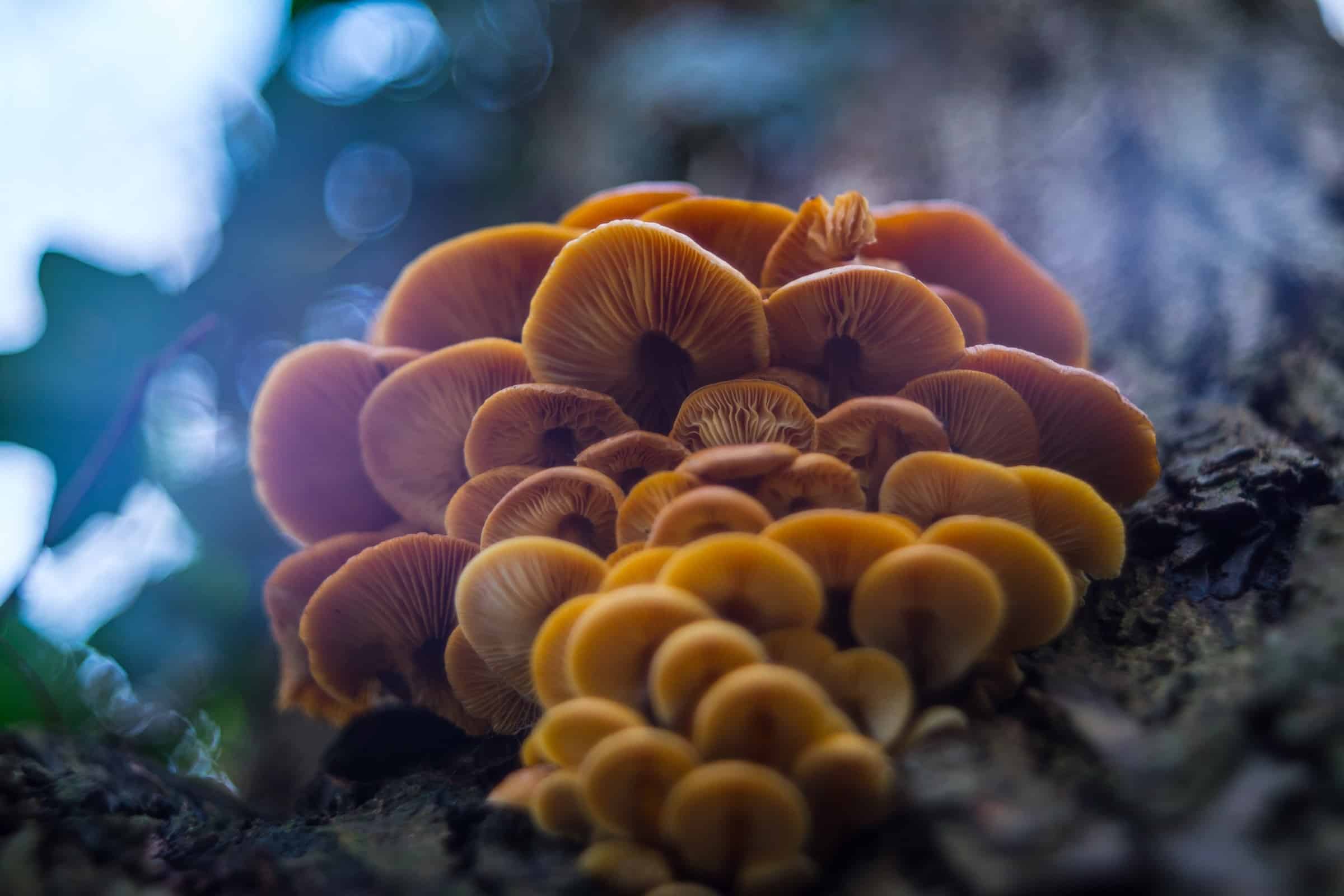The term “ecodelics” is a relatively new concept, coined to describe the use of psychedelic substances as a means of enhancing ecological awareness, encouraging eco-friendly behavior, and fostering a deeper sense of connection with the more-than-human world. Psychedelic plants, fungi, and plant-derrived materials have been used since time immemorial by Indigenous cultures world-over, and have gained mainstream popularity in recent years for their potential therapeutic and healing benefits. However, can they also help us become more environmentally conscious? In this article, we explore the origin of the term “ecodelics” as well as the scientific research that has been conducted on the relationship between psychedelics and ecology.
What are Ecodelics?
The term ecodelics was first coined in 2015 by author and Professor of English and of Information Sciences and Technology at Pennsylvania State University, Dr. Richard Doyle. In his book, Darwin’s Pharmacy: Sex, Plants, and the Evolution of the Noosphere, he argues, after reviewing thousands of reports about psychedelic experiences, for what he calls the “ecodelic” insight. That is, the sudden realization of being part of an interconnected ecosystem. From this perspective, the relationship between humans and psychedelics is not solely for our own individual benefit but is part of a larger feedback system that awakens us to our collective responsibility and contributes to the health of the Earth as a whole.
The “ecodelic” insight is characterized by a sense of awe and wonder that enables us to recognize our place within the larger web of life, moving us to take responsibility for our actions and make choices that support the continued flourishing of life. This can involve everything from reducing our carbon footprint to supporting sustainable agriculture and conservation efforts to building deeper relationships with our communities and more-than-human kin.
In an essay contribution titled “Ecodelic Practices for the Anthropocence” published in The Ecological Thought, Doyle describes ecodelics as “a class of compounds that can catalyze a deep and transformative experience of nature, and through that experience inspire a deep and lasting commitment to its preservation.” Essentially, ecodelics are a type of psychedelic substance that can lead to an enhanced appreciation and respect for the natural world, ultimately leading to more life-sustaining, regenerative ways of being in the world.
Research on Psychedelics and Ecology
While the use of psychedelics for therapeutic purposes has been extensively researched, the relationship between psychedelics and ecology remains a relatively new field of study. However, some research has been conducted on the topic.
A 2019 research paper titled “From Egoism to Ecoism” explored the link between psychedelics and nature-relatedness. Through conducting an online survey with 654 participants by sending them a questionnaire 1 week before they were planning on using a psychedelics, plus 1 day, 2 weeks, 4 weeks, and 2 years after a psychedelic experience, researchers found that they frequency of lifetime psychedelic use was positively correlated with baseline scores in nature-connectedness, with a person’s sense of connection with nature being significantly increased after their psychedelic experience.
A more recent 2022 study looked at the relationship between psychedelic use, mystical experiences, and pro-environmental behaviors. In an online survey with 240 participants data was collected on participants’ psychedelic-occaisioned mystical experiences, personality, and self-reported pro-environmental behaviors, finding that those that had reported experiencing a “complete” mystical state also had higher scores for self-reported pro-environmntal behaviors such as eating and shopping in more environmentally sustainable ways.
Reshaping our Relationship with Nature
The concept of ecodelics is an exciting new field of research that has the potential to encourage more environmentally conscious behavior. While the research is still in its early stages, there is evidence to suggest that psychedelics can enhance our appreciation and respect for the natural world, ultimately leading to more eco-friendly behavior. As we continue to explore the potential benefits of ecodelics, we may discover new ways to promote regeneration and act in kinship with our planet.
While psychedelics may have the potential to foster ecological consciousness, it is important to recognize that they are not a cure-all for environmental problems. It is ultimately up to individuals, their communities, and culture at large to take responsibility for healing ourselves and our relationship with the planet. Nevertheless, the insights and experiences gained from using psychedelics can serve as a valuable tool in inspiring us to take action and make positive changes for ourselves and our more-than-human kind.


